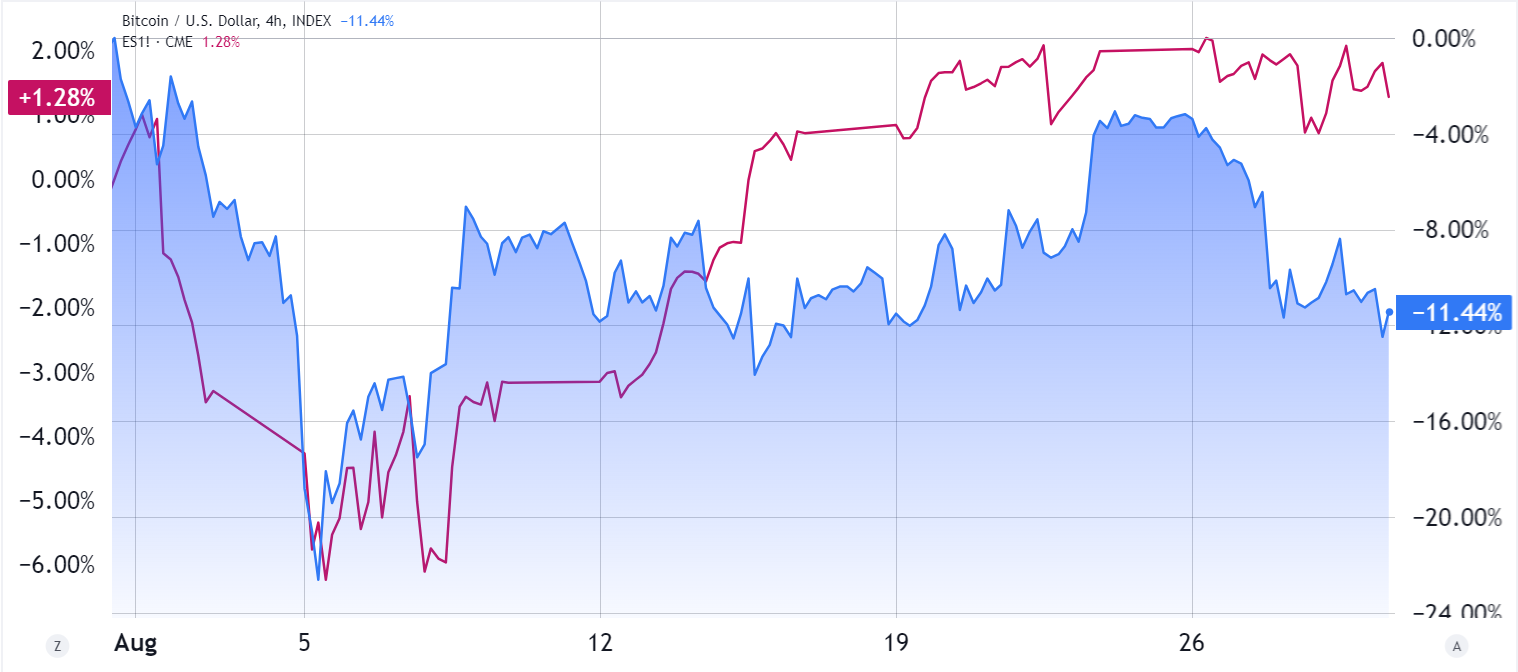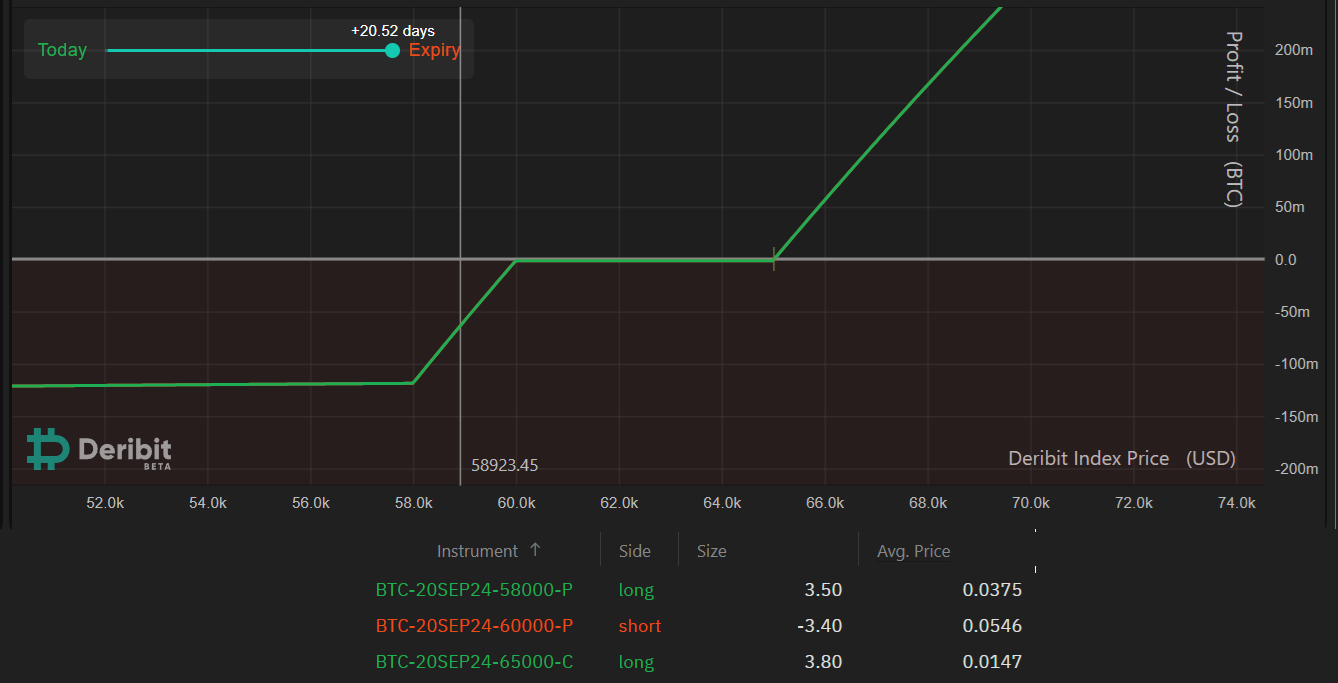Bitcoin traders expect BTC to rise if the Fed cuts rates by 0.50%, but hedging these bullish positions is necessary. Here’s how.
Bitcoin has failed to close above $62,000 multiple times since August 3 and is now down 11% over the past 30 days. More notably, the cryptocurrency has decoupled from the S&P 500, which is up 1% over the same period and is just 1% below its all-time high.
 12-hour chart of Bitcoin price in USD (right) and S&P 500 futures (left). Source: TradingView
12-hour chart of Bitcoin price in USD (right) and S&P 500 futures (left). Source: TradingView
As investors anticipate a potential surge in risk markets, including Bitcoin, if the Federal Reserve (Fed) cuts interest rates, professional traders are using BTC options to maximize gains while limiting risk.
0.50% rate cut could boost risk markets, including Bitcoin
Traders are working to optimize their strategies for potential Bitcoin price increases, while also fearing forced liquidations due to unexpected price volatility. Parts of the market have already priced in a 0.50% rate cut, and despite potential bullish catalysts, it is difficult to predict how the market will react on September 18.
The price action suggests that positive macroeconomic trends in risk markets have been overshadowed by growing concerns in the cryptocurrency space, with some citing Democratic candidate Kamala Harris’ lack of commitment to supporting the industry as contributing to Bitcoin’s lackluster performance.
Gemini exchange co-founder Tyler Winklevoss believes that “Operation Choke Point 2.0 is still in full swing” and that the “Harris Crypto ‘reset’ is a scam.” Winklevoss highlighted the Federal Reserve’s recent actions against crypto-friendly institutional Customers Bank after the Philadelphia Federal Reserve claimed that the bank failed to uphold anti-money laundering and risk management practices.
Additionally, a U.S. federal court judge sided with the U.S. Securities and Exchange Commission (SEC) after the Kraken exchange attempted to dismiss a case. On August 3, the U.S. District Court in Northern California ruled that Kraken could be held liable for offering "investment contracts, and therefore securities," a major setback for the industry. Although Bitcoin has not been directly affected, investor sentiment has weakened.
However, with the CME's FedWatch tool showing a 25% chance of a 0.50% rate cut on September 18, many believe the risk-on market could rebound. Instead of taking the risk of leveraged futures positions, professional traders are turning to options strategies.
‘Risk Reversal’ Bitcoin Options Strategy Offers Downside Protection
Among these complex strategies is "risk reversal," which is a hedge against losses from unexpected price swings. Essentially, investors profit by holding a call option while paying out by selling a put option. This setup eliminates the risk of an asset trading sideways and limits downside risk.
 Profit and loss estimates. Source: Deribit Position Builder
Profit and loss estimates. Source: Deribit Position Builder
The trades shown above are primarily for options on September 20, but similar patterns can be applied to different expiration dates. At the time of pricing, Bitcoin was trading at $58,923.
First, the trader needs to buy the 3.5 BTC put option at $58,000 to protect against downside movement. Then, the trader sells the 3.4 BTC put option at $60,000 to get a net profit above this level. Finally, the trader should buy the 3.8 BTC call option at $65,000 to get positive price exposure.
This option structure offers no profit or loss between $60,000 and $65,000. Investors betting that the price of Bitcoin will be above this range at 8:00 AM (UTC) on September 20th, receive unlimited profit and face a loss of up to 0.12 BTC (worth $7,000).
If Bitcoin rises to $67,100 (a 14% increase), the strategy will bring a profit of 0.12 BTC, which is also the maximum loss. In addition, if BTC rises 20% to $70,700, the strategy will bring a profit of 0.30 BTC (worth $212,000), and the upside far exceeds the limited downside. Although this option structure has no initial cost, the exchange will require a 0.12 BTC margin deposit to cover the risk.








